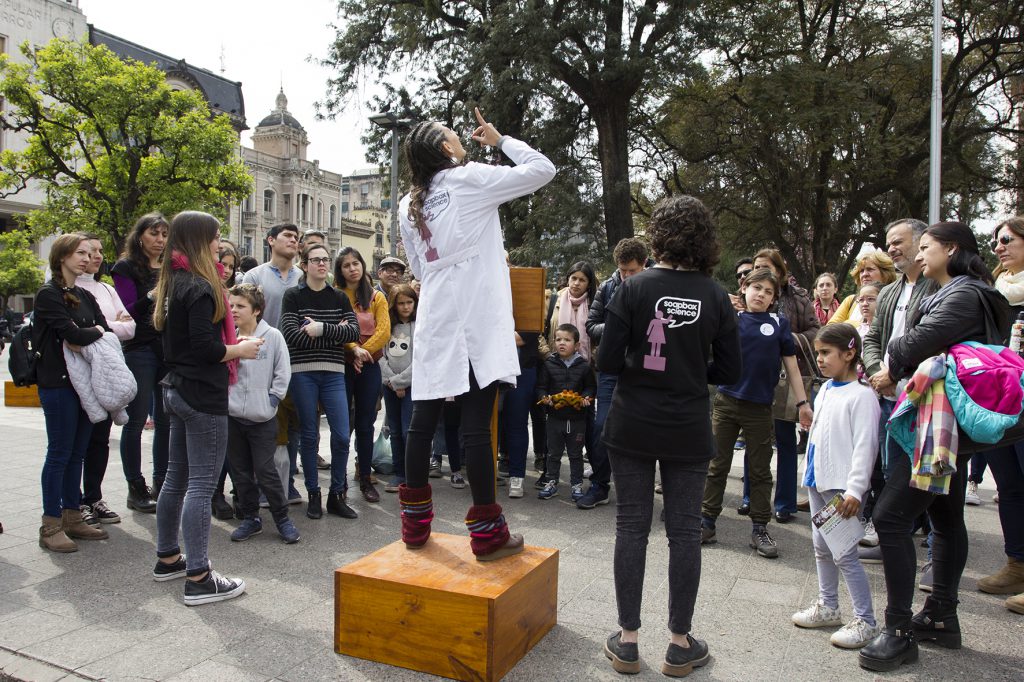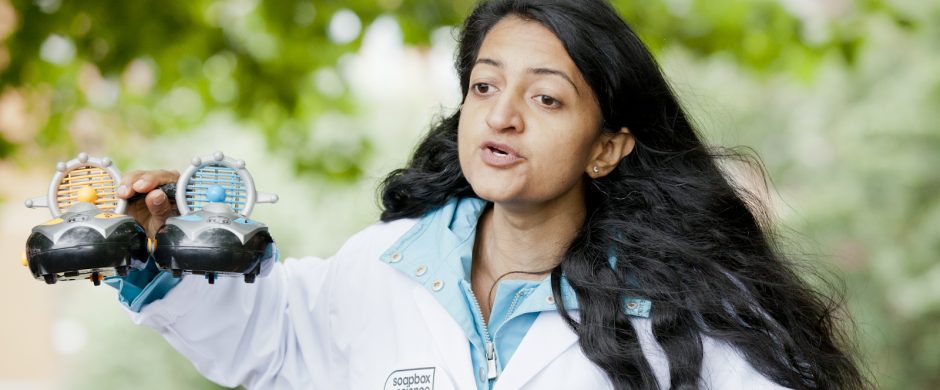By María Piquer-Rodríguez, Organizer of Soapbox Science Tucumán
This year was the first time that Soapbox Science celebrated an event in Latin America and in Spanish! Tucumán, a province in the north of Argentina held a Soapbox Science event in Spanish for the first time, where around 400 people attended. The event had huge media coverage and thanks to the great efforts of the media and organizers the particular case of a worm that eats plastic went viral and the main researcher received an offer from an international petrol company to further fund their research.
Dr. Carolina Monmany ( @CMonmanyGarzia ) works at the Institute of Regional Ecology (CONICET-UNT) in Tucumán, Argentina. She is the coordinator of a project that studies the usage of plastic in the world, the spatial expansion of plastic usage and recently registered a worm that can digest plastic. They were collaborating on a different project that studies pollinators and when collecting some of the beehives they found out that one of the plastics that covered one beehive had a hole. Looking carefully, they found out that there was a worm that could have potentially eaten the plastic. After doing some tests with these worm they discovered that they actually can eat different types of plastics (they even have a preference for some of them!), and what is more promising, they can digest these plastics! This does not mean that producing many of these worms could save the monstrous environmental problem plastic is causing on the planet, but it may be a first step towards rethinking solutions. As Carolina says, the first step towards solving the problem of plastic-waste is reducing its usage and production!

Carolina presented their interesting findings at Soapbox Science Tucumán in September, where media picked the story and viralized it during the three weeks after the event, to the point that several companies contacted their team interested in working with them further in the great potential their discovery could have towards reducing plastic waste. Currently the team of Carolina are closing a 1-year contract with one of these companies that will further fund their research line and will potentially bring more interesting discoveries.
Something like this does not happen every day, and without the great support and framework of Soapbox Science it would not have been possible. The story of Carolina and her team can hopefully inspire new generations of Soapbox Science speakers and motivate researchers to continue working towards finding environmental solutions to the world’s biggest problems.
